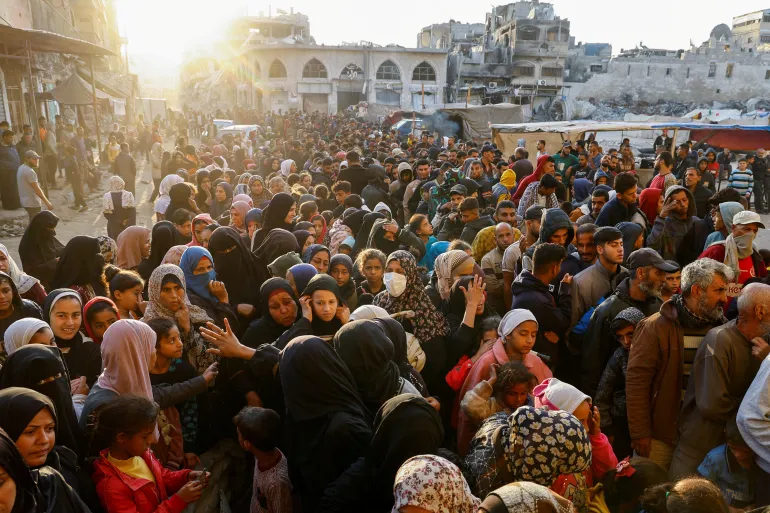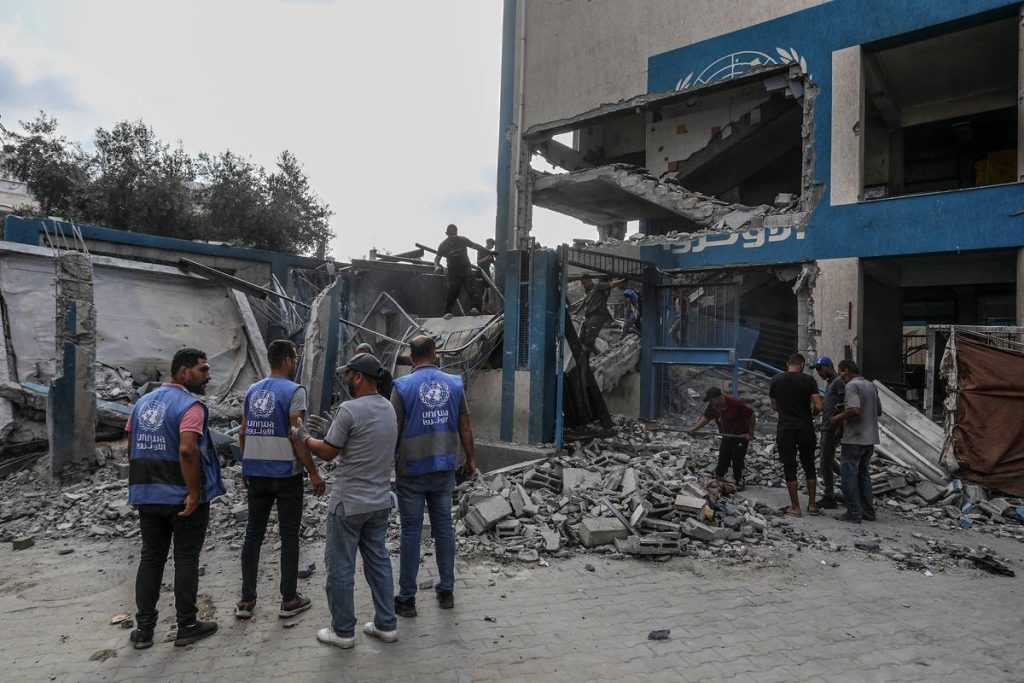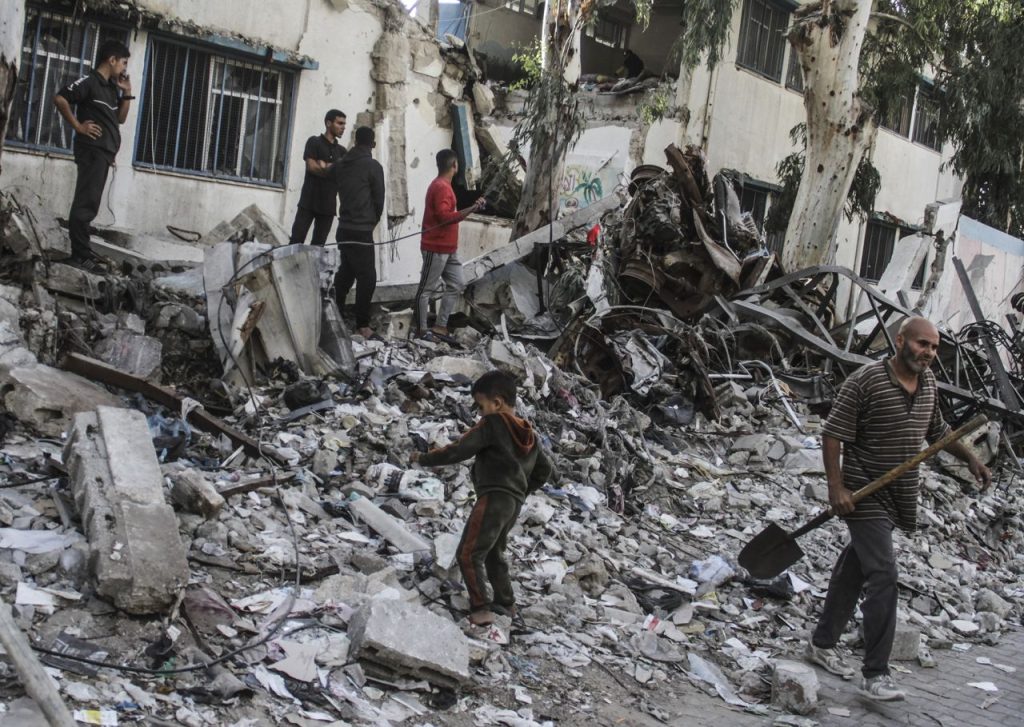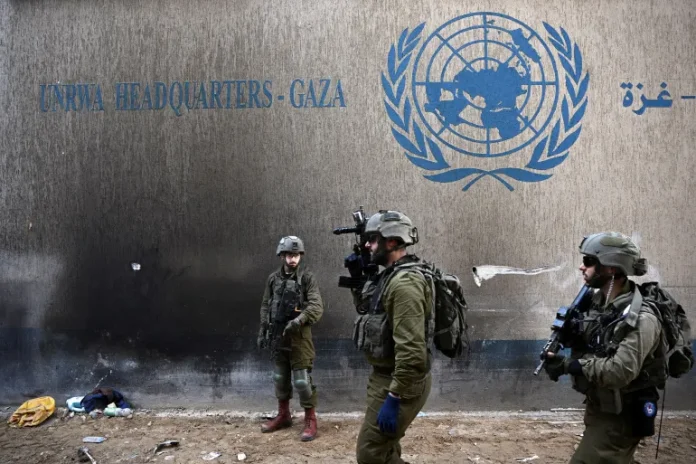In a controversial move likely to deepen the humanitarian crisis in Gaza, Israel’s parliament passed a law on Monday banning operations of the United Nations Relief and Works Agency (UNRWA) within its territory. The decision has drawn criticism from international allies, including the U.S. and several European nations, who fear it will have dire consequences for Palestinians relying on UNRWA’s aid. Established in 1949, UNRWA provides education, healthcare, and relief services to Palestinian refugees. Israeli officials cited evidence of ties between a small number of UNRWA staff and Hamas as the rationale for the ban, stating they could no longer support an organization that, in their view, indirectly fuels conflict.
Prime Minister Benjamin Netanyahu asserted that some UNRWA staff members had been involved in or supported Hamas’ recent attack on southern Israel on October 7, which marked the beginning of an intense new phase in the Israel-Gaza conflict. “UNRWA workers involved in terrorist activities against Israel must be held accountable,” Netanyahu stated.

UNRWA Commissioner-General Philippe Lazzarini condemned the law as a violation of the U.N. Charter and international law, emphasizing that it undermines UNRWA’s mission to provide essential services to millions of Palestinian refugees. “This is the latest in the ongoing campaign to discredit UNRWA and delegitimize its role in providing humanitarian assistance,” Lazzarini said in a statement.
Israeli Military Presses Into Northern Gaza, Straining Humanitarian Resources
As the ban was enacted, Israeli tanks advanced further into northern Gaza, marking an escalation of its ground offensive to dismantle Hamas’ capabilities. This operation, according to the Palestinian emergency services, has resulted in the isolation of approximately 100,000 civilians, who are now without reliable access to food, water, or medical supplies. The intensified military presence has disrupted daily life for civilians, many of whom have been displaced multiple times as the conflict has escalated.
The Israeli military announced on Monday that it had detained roughly 100 suspected Hamas members in a raid on a hospital in Jabalia, a densely populated area in northern Gaza. However, both Hamas and local health officials have denied any military activity in the hospital, which is one of the few remaining operational medical facilities in the north. Despite mounting pressure from Israel, doctors and staff have largely refused to evacuate northern hospitals, fearing that relocating patients to the south would pose even greater logistical and safety risks.

Diplomatic Efforts for Ceasefire Continue, but Progress Remains Limited
Meanwhile, attempts to broker a ceasefire resumed on Sunday in Cairo, with the U.S., Egypt, and Qatar leading negotiations. Egyptian President Abdel Fattah al-Sisi proposed a temporary two-day truce, during which both sides would exchange prisoners. His proposal includes a call for further discussions to establish a longer-term ceasefire within 10 days. This proposal has received tentative support from multiple international parties, though it has yet to secure the full commitment of either Israel or Hamas.
Netanyahu confirmed that Israeli negotiators are participating in talks, though he warned that Israel remains determined to achieve its military objectives, including the dismantling of Hamas. “Israel will not stop until we have ensured Hamas cannot continue to threaten our people,” he stated, underscoring that any ceasefire would be contingent on Israel’s security goals being met. On the other side, Hamas leaders have insisted they will not agree to a truce unless Israeli forces fully withdraw from Gaza.
Conflict Widening: Lebanon and Iran Intensify Regional Hostilities
The ongoing violence in Gaza is having significant ripple effects across the Middle East. Clashes between Israeli and Hezbollah forces in southern Lebanon have intensified in recent days, and Israeli airstrikes on Lebanese territories killed at least 16 people in villages near Baalbek on Monday, according to Lebanon’s health ministry. These strikes mark some of the heaviest bombardments since the beginning of hostilities, as Israel seeks to neutralize Hezbollah’s support for Hamas in Gaza.

The conflict has also brought Israel and Iran, regional rivals, into more direct confrontation. On Sunday, Israeli jets reportedly struck several sites in Iran that Israeli intelligence claims are linked to missile production. The attack was reportedly a response to an Iranian missile strike on Israeli positions earlier this month. Iran has issued stern warnings in response, with Foreign Ministry spokespersons saying that Tehran “will use all available tools” to respond to further Israeli actions, raising fears of a broader regional escalation that could impact global oil prices and trade.
Humanitarian Crisis in Gaza Reaches New Depths
With three weeks of sustained Israeli airstrikes and a tightening ground offensive, the humanitarian situation in Gaza has become increasingly severe. According to Gaza’s health ministry, at least 43,020 people have been killed in the territory since Israel’s intensified operations began earlier this month, with many more displaced or injured. In northern Gaza, three of the area’s largest hospitals have been operating on emergency supplies, as Israel has restricted access to essential goods.
Doctors report that at least two of these hospitals have suffered direct damage from nearby bombardments, leaving medical personnel struggling to treat patients with depleted stocks of essential medicines. Health officials have also reported multiple deaths among patients and staff due to inadequate resources and overcrowding. “Our hospitals are on the brink of collapse,” said a medical official in Gaza City. “People are dying because we simply cannot meet their needs.”
The military operations have not only affected hospitals but have also left residential neighborhoods and shelters under siege. Displaced families are reluctant to flee further south, fearing that they could be permanently cut off from their homes. For many, leaving northern Gaza would mean severing ties to their livelihoods and risking their property being confiscated or destroyed.
Israeli Evacuations and Escalating Warnings in Lebanon
In Lebanon, Israeli forces have intensified airstrikes and issued evacuation warnings, prompting widespread fear among civilians in border areas. The city of Tyre, once a bustling center, has now become a ghost town, with residents fleeing under the threat of airstrikes. On Monday, Israeli authorities issued an urgent evacuation notice to civilians residing near a popular hotel district in Tyre, as footage of civil defense workers urging residents to leave immediately spread on social media.
With an estimated 2,710 Lebanese casualties since the escalation of hostilities last year, local health officials warn that continued strikes could lead to further civilian displacement and casualties. Humanitarian organizations have expressed alarm at the growing scale of evacuations in southern Lebanon, particularly as infrastructure becomes increasingly strained by the surge in displaced persons.

International Reactions and Regional Ramifications
The regional escalation has raised international concerns about oil supply disruptions and the potential for broader economic repercussions. The Gulf States, heavily reliant on stable shipping lanes through the Mediterranean and the Persian Gulf, have been closely monitoring developments and have urged the international community to prevent further conflict expansion. In Europe, fears of increased migration pressures from the Middle East are mounting as countries brace for a potential influx of refugees if the conflict intensifies.
With no clear resolution in sight, the situation remains precarious, and experts warn that the current trajectory could lead to even wider conflict. As international mediators attempt to navigate the competing demands of Israel and Hamas, the humanitarian toll on Gaza’s civilian population continues to rise, casting a shadow over the prospects for a peaceful resolution.




